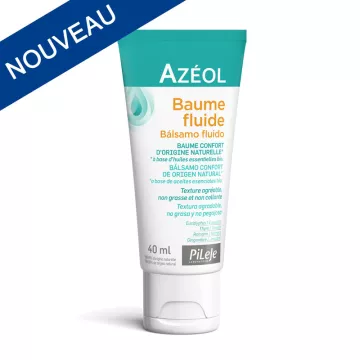
What is a respiratory support product?
A respiratory support product is a type of treatment or supplement specially designed to improve breathing capacity or relieve symptoms associated with respiratory disorders such as asthma, bronchitis or allergies. These products can take various forms, such as inhalers, nasal sprays, syrups or capsules.
How do breathing aids work?
Breathing support products generally work by reducing inflammation, clearing airways or providing therapeutic agents that make breathing easier. For example, corticosteroid inhalers reduce inflammation in the lungs, while bronchodilators widen the bronchial tubes to facilitate airflow.
What are the benefits of natural respiratory products?
Natural respiratory products offer a number of advantages, including reduced risk of side effects compared to synthetic medications. Ingredients such as honey, ginger and eucalyptus are often used for their anti-inflammatory and expectorant properties, helping to clear the airways and soothe the throat.
How do I choose the right respiratory support product for my needs?
To choose the most suitable respiratory support product, it's crucial to consider the nature and severity of your condition. Always consult a healthcare professional for personalized advice. It's also important to check the product's ingredients to avoid any potential allergies.
Where can I buy breathing support products online?
You can buy breathing support products from specialist online pharmacies, which offer a wide range of natural and pharmaceutical products. Make sure the online pharmacy is certified and recognized to guarantee the authenticity and safety of the products purchased.
What affects breathing during a cold or allergy?
When a person suffers from a cold orallergies, several factors can affect breathing. Allergens such as pollen, dust or animal hair, as well as the viruses responsible for colds, cause inflammation of the respiratory tract. This inflammation leads to excessive mucus production, making breathing difficult and often noisy.
How can I improve my breathing during a cold or allergy?
To improve breathing, several methods can be applied:
What medications are recommended to treat difficult breathing due to allergies or colds?
Medications often recommended include:
Are breathing exercises beneficial for colds and allergies?
Yes, breathing exercises can be very beneficial. Techniques such as diaphragmatic breathing or lip-controlled breathing can help to better manage breathing and reduce stress, which is often an aggravating factor in colds andallergies.
Can breathing difficulties associated with allergies be prevented?
To prevent breathing difficulties due to allergies, we recommend avoiding known allergens wherever possible. Using air purifiers, maintaining good environmental hygiene and following a preventive treatment prescribed by a health professional can also contribute to better allergy management and easier breathing.
When should I consult a doctor about breathing problems linked to colds or allergies?
It's important to consult a doctor if :
What influence does the environment have on allergy-related respiratory disorders?
The environment plays a crucial role in the exacerbation ofallergy symptoms. Airborne allergens such as pollen, mold spores and dust mites can strongly affect indoor air quality, aggravating breathing problems. We recommend keeping windows closed during periods of heavy pollination, and using HEPA filters in ventilation systems to purify ambient air.
How do seasonal changes affect allergy symptoms and breathing?
Seasonal changes can significantly influenceallergy symptoms and breathing quality. In spring, increased pollen counts can trigger severe allergic reactions, exacerbating respiratory problems. In autumn, mold spores and the increased presence of dust mites due to heating can also cause respiratory difficulties. It's essential to adapt your allergy treatment and precautions according to the season.
What are the symptoms of an allergic reaction affecting breathing?
Symptoms of an allergic reaction that can affect breathing include:
Are there any natural treatments to improve breathing in the event of allergies?
Yes, a number of natural remedies can support breathing in the event ofallergies:
When do difficult breathing symptoms require emergency intervention?
Emergency intervention is required if symptoms of difficult breathing are accompanied by :